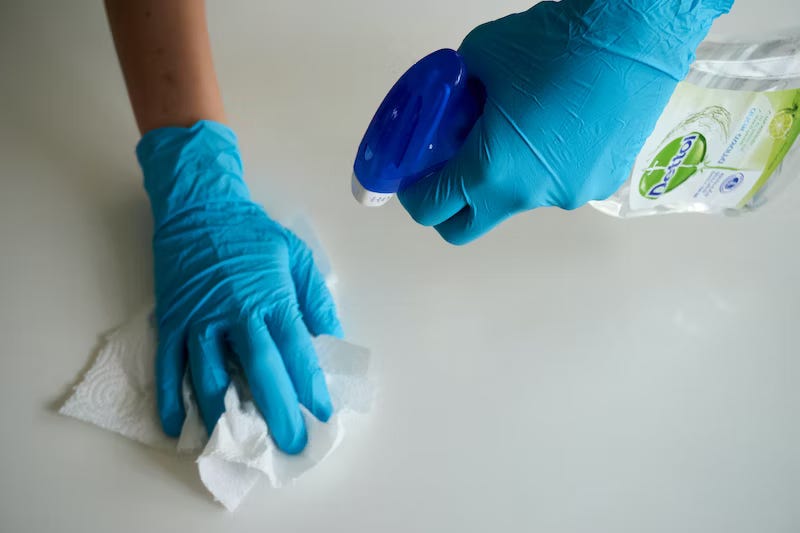Eco-Friendly Cleaning Services
Using friendlier cleaning products can drive higher margins in the cleaning service business
The eco-friendly cleaning service business is an emerging sector within the broader cleaning industry, gaining traction due to increasing awareness about environmental conservation and the harmful effects of some chemicals. In general, eco-friendly cleaning services use products that are biodegradable and non-toxic. The market for eco-friendly cleaning services is expected to reach $4.13 billion by 2027, growing at a CAGR of 6.2% (Grand View Research).
Starting an eco-friendly cleaning business generally requires a lower initial investment compared to other ventures. Typical startup costs can range from $3,000 to $20,000, depending on scale and location. These costs cover licenses, insurance, cleaning supplies, and equipment. Franchise opportunities are abundant in this space, with some well-known names including CleanNet, Anago Cleaning Systems, and Stratus Building Solutions, offering various plans to suit different levels of investment and expertise.
Margins in the cleaning industry are generally around 10-40%, but eco-friendly services can command higher prices, potentially boosting these figures. Expected returns on investment vary but can be quite lucrative if operations are managed efficiently. A report by Sageworks found that cleaning service companies enjoyed an average pre-tax profit margin of about 15.7%.
Here’s an example P&L of a four-person cleaning service business:
Revenue:
Total Revenue: $230,000
Cost of Goods Sold (COGS):
Eco-friendly Cleaning Supplies: $6,000
Equipment Depreciation: $2,000
Total COGS: $8,000
Gross Profit:
Gross Profit: $230,000 (Revenue) - $8,000 (COGS) = $222,000
Operating Expenses:
Salaries (4 Employees): $160,000
Vehicle Expenses (Fuel, Maintenance): $10,000
Insurance: $3,000
Rent for Storage Space: $6,000
Marketing: $5,000
Utilities: $1,000
Miscellaneous: $2,000
Total Operating Expenses: $187,000
Net Profit:
Net Profit: $222,000 (Gross Profit) - $187,000 (Operating Expenses) = $35,000
No extensive commercial space is required for this type of business, especially for small operations. Many entrepreneurs start by storing supplies in a home garage and using family vehicles for transport. As the business expands, a small warehouse space might be necessary for storage. Eco-friendly cleaning businesses primarily serve homes, office buildings, schools, and hospitals, so proximity to these establishments is crucial. Target upscale neighborhoods and commercial districts that are more likely to be conscious of eco-friendly services.
Expertise in the cleaning industry is valuable but not mandatory. Business acumen, strong organizational skills, and a commitment to eco-friendly practices are critical. Staff typically includes cleaners and possibly a supervisor or manager as the business scales. Initial training should cover both cleaning techniques and the importance of sustainable practices. Quality assurance and customer service training are also essential to differentiate your service in a competitive market.
Challenges in this business are akin to those in traditional cleaning services but with the added hurdle of educating the consumer. Eco-friendly services often come at a premium, so business owners must convince prospective clients of the value and benefits of green cleaning. Competition is fierce, including from traditional cleaning services that may also offer eco-friendly options as an additional service. Further, the eco-friendly label necessitates ongoing commitment to sustainable practices, including staying updated on the latest environmentally safe cleaning products and methods.
Moreover, there can be regulatory hurdles, especially concerning the environmental claims a business can legally make. Thorough understanding of the Federal Trade Commission’s Green Guides is essential to ensure compliance. Overall, the eco-friendly cleaning business offers a financially and morally rewarding opportunity but requires a unique set of skills, a well-researched business plan, and a genuine commitment to sustainability.
—Emily Bannerman



